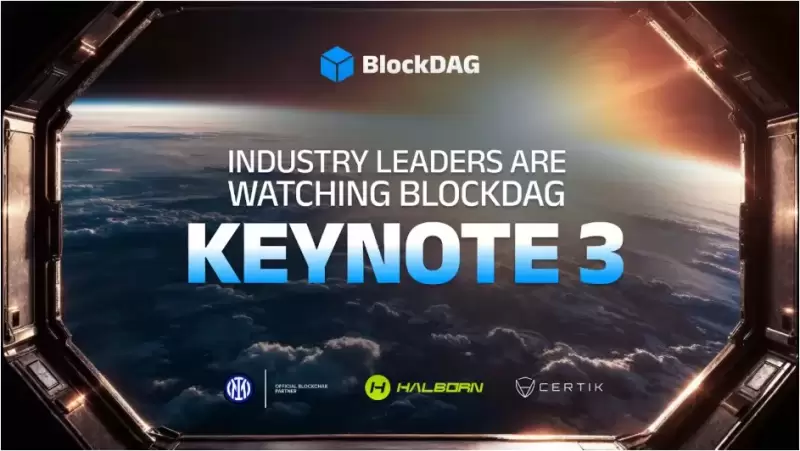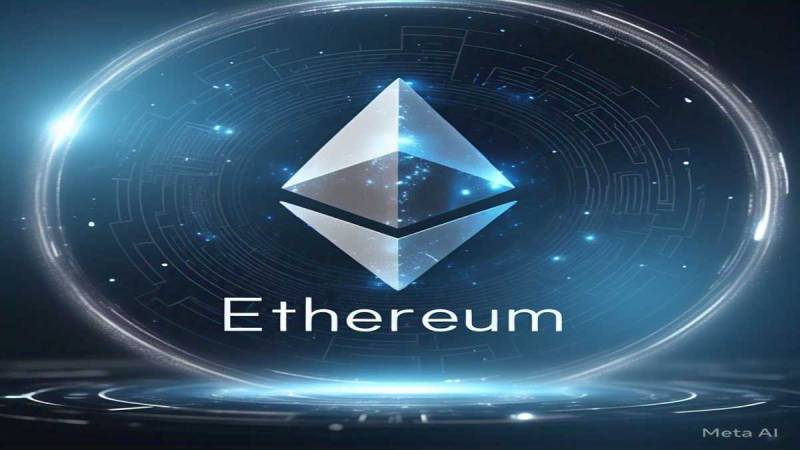 |
|
 |
|
 |
|
 |
|
 |
|
 |
|
 |
|
 |
|
 |
|
 |
|
 |
|
 |
|
 |
|
 |
|
 |
|
Cryptocurrency News Articles
MicroStrategy's Orange Revolution: Bold Bet on Bitcoin Decentralized Identity
May 02, 2024 at 05:34 pm
MicroStrategy Chairman Michael Saylor unveiled plans for MicroStrategy Orange, a decentralized identity solution on the Bitcoin network. This initiative aligns with MicroStrategy's Bitcoin-focused strategy, leveraging Ordinal-based inscriptions for data storage and retrieval. However, the move has drawn criticism from core Bitcoin proponents, who view Ordinal inscriptions as potentially detrimental to the network's integrity and contributing to blockchain spam.

MicroStrategy's Bold Incursion into Decentralized Identity on the Bitcoin Network
In a groundbreaking move, MicroStrategy, the prominent Bitcoin-focused company led by Michael Saylor, has unveiled its ambitious plan to introduce "MicroStrategy Orange," a decentralized identity solution, on the Bitcoin network. This transformative initiative, announced during Saylor's "Bitcoin for Corporations" address on May 1, seeks to establish a universal standard for decentralized identity, challenging the dominance of existing blue and green checkmarks.
Saylor envisions MicroStrategy Orange as a global identity system, leveraging Bitcoin's inherent security and immutability. The distinctive orange checkmark, he believes, can become the ubiquitous symbol of a decentralized identity, recognized worldwide. "Wouldn't it be great if instead of the blue check or the green check, we could have an orange check that could become a global standard?" Saylor remarked. "With MicroStrategy, maybe we can approach this idea of decentralized identity with Bitcoin."
This initiative aligns seamlessly with MicroStrategy's metamorphosis into a Bitcoin-centric development company. The Virginia-based enterprise boasts the largest public holding of Bitcoin, with an impressive 214,400 BTC, valued at approximately $12.4 billion.
MicroStrategy Orange: Technical Underpinnings
An unofficial draft document published on MicroStrategy's GitHub repository sheds light on the technical underpinnings of MicroStrategy Orange. The solution utilizes Ordinal-based inscriptions for efficient data storage and retrieval on the Bitcoin blockchain. It is designed to be open-source and capable of accommodating up to 10,000 decentralized identifiers (DIDs) per Bitcoin transaction.
According to the draft document, "The Bitcoin Inscription DID method (did:btc) uses the Bitcoin blockchain exclusively to store and retrieve DID information. UTXOs on the chain are utilized to control DIDs, while inscribing data in the witness of transactions ensures greater extensibility and verbosity in DID documents. This approach reduces fees and block space consumption."
Furthermore, MicroStrategy Orange aims to provide "trustless, tamper-proof, and long-lived decentralized identities using only the public Bitcoin blockchain as a data source."
Mixed Reactions from Bitcoin Community
MicroStrategy's embrace of Ordinal-based inscriptions has elicited mixed reactions within the Bitcoin community. While some proponents welcome this innovation, others, including core Bitcoin developer Luke Dashjr, have expressed concerns.
Dashjr views Ordinals as potentially disruptive to the BTC network. "Somehow Saylor thinks it makes sense to buy lots of Bitcoin and then destroy the Bitcoin network," he stated. "Ordinals are an attack on Bitcoin."
Dashjr has been a staunch critic of Ordinals, arguing that they deviate from Bitcoin's core principles and contribute to blockchain spam. Bob Burnett, CEO of Bitcoin mining firm Barefoot Mining, shared similar sentiments, "I have to read the whole thing, but this doesn't look good. Saylor, jumping on the inscription path is not a good one. I hope you'll relook at this before implementing."
Conclusion
MicroStrategy's foray into decentralized identity on the Bitcoin network represents a bold and ambitious undertaking. The potential benefits of a universal decentralized identity system, one that is secure, transparent, and accessible to all, are undeniable. However, the technical challenges and concerns raised by some members of the Bitcoin community must be carefully considered and addressed.
As MicroStrategy Orange evolves, it will be imperative for the company to engage in constructive dialogue with the broader Bitcoin community, ensuring that the solution aligns with the network's long-term vision and values. The outcome of this initiative has the potential to shape the future of digital identity and the role of Bitcoin in the emerging decentralized ecosystem.
Disclaimer:info@kdj.com
The information provided is not trading advice. kdj.com does not assume any responsibility for any investments made based on the information provided in this article. Cryptocurrencies are highly volatile and it is highly recommended that you invest with caution after thorough research!
If you believe that the content used on this website infringes your copyright, please contact us immediately (info@kdj.com) and we will delete it promptly.
-

-

- The Hyperliquid (HYPE) future continues to shine as the decentralized exchange breaks past $1 trillion in trading volume
- Apr 11, 2025 at 10:25 am
- The Hyperliquid (HYPE) future continues to shine as the decentralized exchange breaks past $1 trillion in trading volume, offering unmatched speed and full anonymity
-

-

- Rexas Finance (RXS) is at a crossroads, with investors wondering if the price will rise above $0.50 or fall under $0.05.
- Apr 11, 2025 at 10:20 am
- DOGE is now trading at $0.17, near key support levels. Analysts are paying great attention to price fluctuations, as the Falling Wedge pattern and Stochastic RSI crossing provide conflicting signals.
-

-

-

- BlockDAG (BDAG) picks up speed, launching $30m grants program and partnering with SpaceDev to shape the next era of blockchain.
- Apr 11, 2025 at 10:10 am
- Learn what's shifting in Ethereum analysis, what's behind PI coin's fall, and how BlockDAG's SpaceDev deal and $30m grants shape the next era of blockchain.
-

-


















![🐢Super Mario World Koopa Troopa 100% 96⭐️ + Coin [Ao Vivo] 🐢Super Mario World Koopa Troopa 100% 96⭐️ + Coin [Ao Vivo]](/uploads/2025/04/10/cryptocurrencies-news/videos/super-mario-koopa-troopa-coin-ao-vivo/image-1.webp)









































